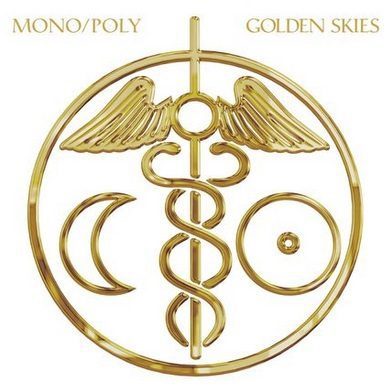[dropcap style=”font-size:100px; color:#992211;”]”It[/dropcap] started out as an EP called Golden Skies, but now there another side that has more night feel to it.”
Charles Dickerson (also known as Mono/Poly) let slip some hints about his next record all the way back in March 2013:
“So now it’s an album with two sides to it. Which I guess goes back to the polarity thing that I always capture with my music, it’s sun and moon music so I’m still thinking on what I want to call the moon side. It’s just kinda about beautiful textures and bunch of I-don’t-know-what-to-call-it. I was really drawn to seventh chords. (and texturally) …it’s a mixture between organic and synthesised, where some of the synthetic sounds sound organic and have this brassy type sound to it.
My music always seems to be light and dark, and trying to figure out why that is. Like my name, people call it a paradox and you think about universe and quantum physics and it is a paradox but it’s how life works. You have the light and you have the dark and then there is the Mu between the two. That how you create life, by merging the two.”
Golden Skies, it turns out, is a stunning album. A marriage between 70s era Stevie Wonder and electronic psychedelia that honeymoons in the current era of those close relations Flying Lotus, Thundercat and other Brainfeeder acts loosely defined as instrumental hiphop, glip hop etc.
These trance-like jams actually DO feel more like meditations on a emotive theme than songs per se. However, within their stellar grooves there is progression, even if their evolution is a slightly off-kilter one.
Classical elements, tweaked-up strings, funky percussion and heavy loops form the basis of many of the songs here and if they feel a little Albeton-heavy, Dickerson’s mastery of melody carries the case that there is something unique here.
Dickerson resolutely avoids any genre assignation and on Golden Skies has managed the enviable task of creating a new pleasing headspace, where nothing sounds like much else you’ve heard, without resorting to obvious weirdness or cliché abstractions. Anything that remains as musically accomplished as this and yet unrepentantly mental is deserving of attention and praise.
More than with previous records you can hear that Dickerson’s longstanding love for the practices of meditation, astral projection, vedic research and general studies of the inner worlds are reaching a more external manifestation. The almost constant arpeggiated trilling that occurs in each groove takes on a transcendent epic quality. It’s the aural equivalent of someone explaining interstellar flight. It’s disorientating but falls into a sort of rhythm after a while, as the commonalities with a certain scale, or binary events (noise or no) become repetitious.
One criticism is that while it feels like a step into the unknown, it falters in places. The musical narrative of journey doesn’t feel as dynamic as it could. Often, whilst made up of many memorable moments, the tracks themselves stop short of coalescing into cohesive experiences, eliding instead to an evolution as a larger musical piece over the course of the album. But that’s the point? Perhaps, but the album doesn’t always work particularly well in that context either. Although several promising motifs are explored and revisited, the loose threads never quite join.
over the course of the album. But that’s the point? Perhaps, but the album doesn’t always work particularly well in that context either. Although several promising motifs are explored and revisited, the loose threads never quite join.
The choral work on ‘Urania’ is the strong piece that contains the most disquiet as the voices seems to intone ‘Yahweh’, swapping gender in the process. It creates an oddly mind-bending affect that is nowhere near comfortable. Which is how Mono/Poly likes it. Dickerson doesn’t want us to be comfortable exactly, however, he wants to titillate us in ways that we wouldn’t normally appreciate.
Stand-out tracks like ‘Gamma’, ‘Transit to the Golden Planet’ and ‘Ra Rise’ make Golden Skies required listening for anyone who wants to claim knowledge of 2014 electronica and all criticism of this album comes from an understanding that it is an open third eye above anything else on the planet.
A wonderful release that draws the listener into regions of music that feel new, nourishing, and which revitalise the review cliché of ‘mind expanding’. However, as so often with dreams, we’re left with a sense of power and fragmented images of wonder, yet we can’t quite grasp why the component symbols were so important.

Editor, founder, fan.



















